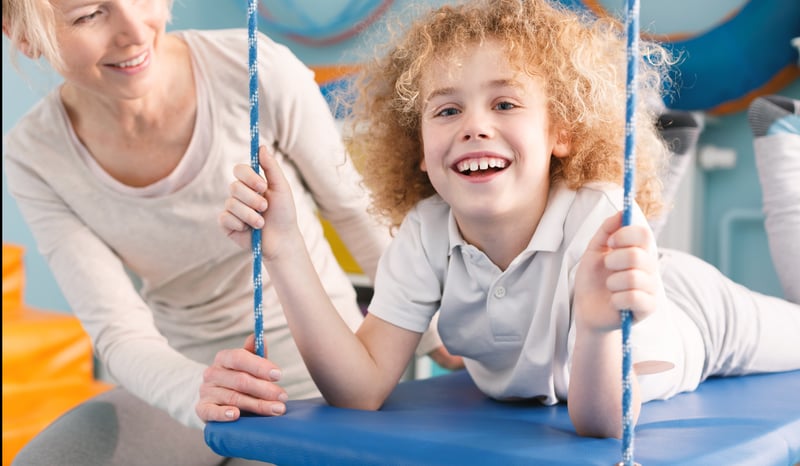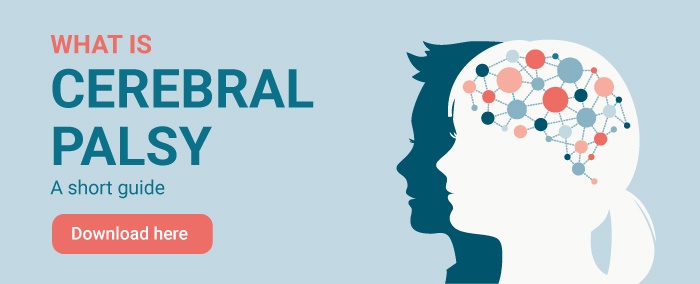Intensive training for children with CP – why and how?


A big question that often arises when we discuss physical therapy for children with Cerebral Palsy (CP) is dosing. How much therapy is considered to be enough?
From previous studies it is known that 90% of children with CP receive physical therapy, 1-2 times per week1.
Today, we don’t know the full answer to what the optimal dose of therapy is to increase gross motor function. There is still a need for future studies focusing on this aspect to maximizing outcomes and offer family-friendly achievable interventions.
Factors associated with gross motor progress
Luckily, a Norwegian article on intensity published last year, is able to give us some insight into these matters.
Størvold among others (2018) performed a register-based study (Norwegian Cerebral palsy surveillance program) which included 2048 assessments of 442 children with CP within the age of 2-12 years. These children represented all GMFCS levels. The exact type of physiotherapy in the study is not known, but the intensity and recorded goals were registered, as well as GMFM-66 (two or more assessments).
GMFM-66 was the outcome variable for the study, where an increase in the reference percentiles was defined as a gross motor function progress. In addition, intensive training was defined as three or more sessions of physical therapy per week and/or participation in an intensive program.
Results
The study showed that the median change in percentiles from one assessment to another was zero, and that most of the children followed their own percentile. On the other hand, the mean increase per year was 2.1 percentiles for the study population. So, the study concludes that intensive training was the only intervention factor associated with gross motor function progress. This goes for all children involved in the study, regardless of GMFCS level.
They also found that intellectual disability was the strongest predictor for less favourable gross motor development. As a matter of fact, the mean gross motor development was 24.2 percentiles lower in children with intellectual disability compared to the other children. Another finding was that ankle contractures might be an obstacle for gross motor progress as the child grows older.
When is intensive training favourable?
The study findings give us clinically relevant information and support the fact that intensive training is better if the goal is to enhance gross motor function in children with CP. Ideally, children should aim for more than three sessions of physical therapy per week and/or intensive training periods for some weeks. The study implicates that one period with intensive training enhances gross motor progress by 3.3 percentiles, while two periods is suggested to enhance gross motor progress by 6.6 percentiles.
So what do you do in your therapy and what implications can this knowledge have for your future practice?
Do you want to know more about CP?
Read our resource page about Cerebral Palsy with answers to most of your questions.
Sources
1. Palisano, R. J., Begnoche, D. M., Chiarello, L. A., Bartlett, D. J., McCoy, S. W., & Chang, H. J. (2012). Amount and focus of physical therapy and occupational therapy for young children with cerebral palsy. Phys Occup Ther Pediatr, 32(4), 368-382. doi:10.3109/01942638.2012.715620
Størvold, G. V., Jahnsen, R. B., Evensen, K. A. I., Romild, U. K., & Bratberg, G. H. (2018). Factors Associated with Enhanced Gross Motor Progress in Children with Cerebral Palsy: A Register-Based Study. Physical & Occupational Therapy In Pediatrics, 1-14. doi:10.1080/01942638.2018.1462288

Rikke Damkjær Moen brings many years of experience as clinical physiotherapist to the Made for Movement team. Her mission is to ensure that everybody, regardless of mobility problems, should be able to experience the joy and health benefits of physical activity. As our Medical Manager, Rikke is passionate about sharing knowledge so that individuals with special needs, families, and clinicians can discover the possibilities and solutions provided by Made for Movement.
The F-words: Fitness, Function, Friends, Family, Fun and Future help practitioners, educators, and families to create a supportive and...
The Innowalk Pro is an excellent end-effector device, providing full-body robotic therapy in standing with weight-bearing. It can be...
Epilepsy is a serious neurological brain disorder that causes recurring seizures and is common in children with cerebral palsy. There...
Hear from us from time to time and learn new things
